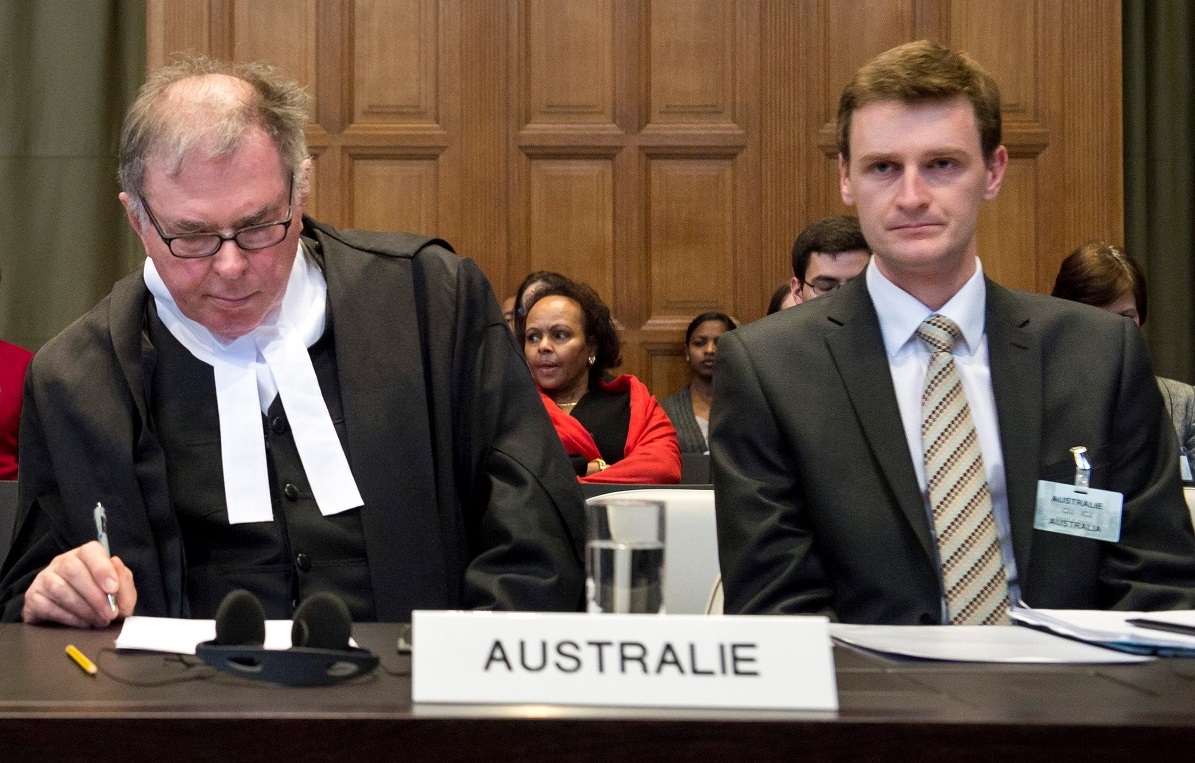
As an expert in international law, Dr Rowan Nicholson has recently been kept very busy due to ongoing tensions between nations. We spoke with with him about his experience at the International Court of Justice, and how family time is his most treasured part of every day.
What is your role and what does your work focus on?
I research and teach law – mainly international and constitutional law. One concept that interests me is sovereignty: the rules about who can create communities of their own and wield political power. In my book, Statehood and the State-Like in International Law, I traced those rules from the European colonisation of Africa through to controversies such as Palestine. The current war in Ukraine shows why this area of law matters: Russia’s main legal argument is that two regions of eastern Ukraine are separate sovereign states that Russia is ‘defending’.
In other work, I’ve looked at the sovereignty of Indigenous Australians. As well as teaching in my areas of expertise, I co-ordinate the Law Honours program.
What journey brought you to this point in your career?
I grew up locally, but I went to England and worked for James Crawford, one of the titans of international law, who sadly died last year. We did cases before the International Court of Justice and it was tremendously interesting work. For example, we acted for Croatia against Serbia in a genocide case, and for Costa Rica against Nicaragua in a dispute about territory and the environment. We also provided advice for the British government on Scottish independence.
I was inspired to do a PhD at the University of Cambridge, and then I lectured for a few years at the University of Sydney, where I also co-directed the Sydney Centre for International Law. My wife and I became eager to come home, and working at Flinders offered an ideal opportunity.
What is something you are most proud of?
In my first semester as a university teacher, one student told me they had remained in the degree because I was enthusiastic and made time for them. That was incredible to hear, so I’m very proud of that. As a researcher, I’m proud of my pieces for a general audience in The Conversation, including an article on whether the colonisation of Australia was an ‘invasion’ in a legal sense (I say it was) and several recent pieces on Ukraine, which led to a series of radio interviews. Not only are these pieces read by tens of thousands more people than will ever read my academic work but they also given me the opportunity to communicate with non-experts – and that makes my expertise more socially valuable.
What do you love most about your work?
University teaching is not just about training students for particular jobs. It’s also about helping them to flourish as individuals and to think critically and imaginatively, which strengthens our whole society. That is a part of my work I find rewarding. I believe that university research is not just about what is commercial or what aligns with the national interest. There is public good through expanding knowledge in ways that are not quantifiable but might help us to see the world differently and, in the long run, to improve it. I find this thought very motivating.
What would you would like people to know about your role?
Academics are aware they are privileged compared to many people: they are paid to do work they are passionate about. The flip-side is that academia is a dangerous workplace for mental health, because academics are frequently asked to justify their right to do their job and may be told they are failing at it – which can happen each time they submit work for publication, apply for funding, receive student feedback, or try to meet performance criteria on which their allocated research time depends. For some, high workloads and job insecurity add to the mental health risk.
How do you like to relax or spend your spare time?
Since I became a father, relaxation and spare time have become scarce but I enjoy spending time with my family and doing things in our home. The books I like to read are varied; currently they are on the American Revolution, global economic inequality, Chinese historical fantasy, European comics, and Regency romance. I also like pub quizzes and talking about politics. My creative outlet is writing my own fiction.

